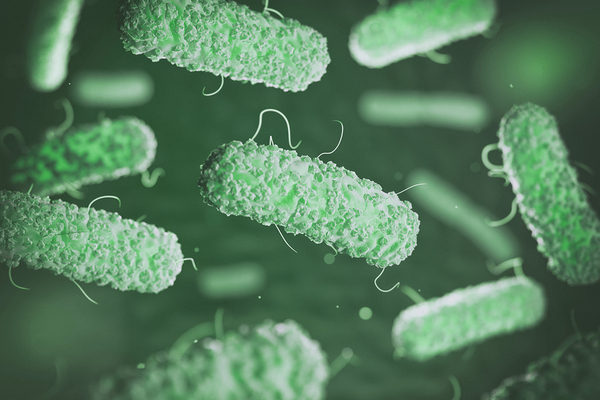


If 2020 has taught us anything, it is how vital a well functioning immune system is to our overall health and wellbeing.
A complex network of organs, pathways, cells and proteins that protect us from pathogens and various types of diseases, the immune system is our body’s ultimate defense against anything that could enter our system and potentially cause us harm. With that in mind, what can we do to return the favor and protect our immune system? Fuel it with the proper nutrients, vitamins and foods.
During the cold and flu season, particularly this year, as we continue to navigate our lives through a global viral pandemic, it is of utmost importance to take nutrition and lifestyle steps that enable our immune system to function properly.

To help you protect your immune system, our nutritionist at Living Proof NYC has created a guide to explain the basics of how our immune system works and the types of nutrients and foods you need to support a healthy, productive dynamic between you and your immune system.
Before we can support our immune system, we need to understand its various cells and their essential functions:
Lymphocytes are one of the body’s primary types of immune cells. As part of the group of white blood cells in our immune system, they originate from our bone marrow and can be found in both our blood and lymph.
There are three different types of Lymphocytes, each serving a different, important function:
Neutrophils are the most common type of white blood cell. In fact, they account for slightly above half the population of white blood cells in our body.
Also known as polymorphonuclear leukocytes (PMN’s), these cells are primarily found in our bloodstream, but they can quickly and efficiently migrate to an infection within hours.
Typically responsible for the increase in white blood cell counts in our bloodstream during an infection, neutrophils quickly multiply, move into damaged tissue and begin the healing process our body needs to recover. This recovery response is responsible for “pus,” our body’s natural reaction as these white blood cells consume and eliminate bacteria/fungi.
Conversely, neutrophils play a much smaller role in our body’s natural defenses against viruses.
Directly related to neutrophils and accounting for nearly 10% of the white blood cells in our body, monocytes are primarily found in the walls of our liver and spleen.
Lining the outside walls of these two organs, monocytes are primarily responsible for capturing any harmful microorganisms that pass by in our bloodstream. These white blood cells are excellent at detecting environmental changes and quickly adapting in a way that protects our body from danger.
Sometimes, our Monocytes leave the lining of our organs and move into our bloodstream. When this happens, the cells change shape and size to become macrophages.
Macrophages play a pivotal role in our natural defense system, as they systematically rid our body of fungi and highly dangerous bacteria (such as the kind that causes tuberculosis). These cells are also extremely effective at battling chronic infections, often working with T-Cells to kill harmful microorganisms and restore our bodies.
As their name suggests, stem cells are incredibly important to our immune system because they are the origin (stem) of all other specialized cells in our body.
Through the process of division, these cells divide into either new stem cells or other specialized cells such as blood cells, brain cells and bone cells. There is no other cell type in the human body that has such a powerful capacity to control our body’s defenses against unwanted pathogens.
It is this impressive capability that makes stem cells such a popular area of research in modern science, particularly in the fields of regenerative medicine, drug safety testing and disease study.
Now that we understand the key cells in our immune system, let’s dive into the dynamic between our gut and immune system and how we can use nutrition to enhance this relationship:
Butyrate is a key component of understanding the relationship between our immune system and our microbiome because it is one of the clearest and most important examples of interaction between the two.
Butyrate is a short-chain fatty acid (SCFA) produced by commensal gut bacteria, but its effects spread far beyond just our gut. Specifically, butyrate plays a crucial role in refining and enhancing immune cells’ ability to fight and destroy bacteria. Butyrate is a main fuel source for our immune cells.
Intent on demonstrating the importance of butyrate to the gut-immune system relationship, scientists have proven through a multitude of studies that butyrate-related macrophages from our gut are “bacteria killing machines” whose efficacy and efficiency far supersedes a non-butyrate influenced macrophages (normal bacteria-killing cell) in our immune system.
You're probably wondering, do the connections between our gut, microbiome and immune system expand beyond butyrate? The answer is a resounding YES.
Myriad studies point to our gut as the place where many microbes enter our bodies. This means that our gut is often the entry point of harmful pathogens such as Salmonella and E coli, but it is also the home of our body’s plentiful supply of helpful microbes. How is this possible? The microbiome.
The microbiome (a diverse ecosystem of healthy bacteria in our gut) protects our body in many ways that expand beyond defending us from an upset stomach. It is responsible for maintaining the health of our gastrointestinal tract and ensuring our gut immunity.
This task is so important because 70-80% of our immune system is in the lining of our gut, meaning that its continued health, strength and effectiveness is critical to protecting our body 24/7/365.
For examples of the constant connection between our microbiome and our immune system, we need look no further than the consistent correlation between people who suffer Inflammatory Bowel Disease (and similar health issues) with a deficiency in the healthy microbe population of their microbiome.
Studies consistently show that this lack of healthy bacteria in the gut contributes not only to the digestive and gastrointestinal issues associated with IBD, but also the inflammation, swelling and even mood-imbalances associated with the disease. This means that people who suffer IBD can be at a higher risk of a weakened immune system.
As technology and research advance, it only becomes more clear that the health of our gut and microbiome is vital for the success of our immune system.
Healthy Sources:
Healthy Sources:
Healthy Sources:
Healthy Sources (Note: few naturally-occurring foods feature high levels of Vitamin D):
Healthy Sources:
Healthy Sources:
Healthy Sources:
Eating to support our immune system requires eating primarily a whole food, highly plant-based diet, rich in fiber, vitamins and minerals. And it is so worth it, for nothing is more valuable than your health.